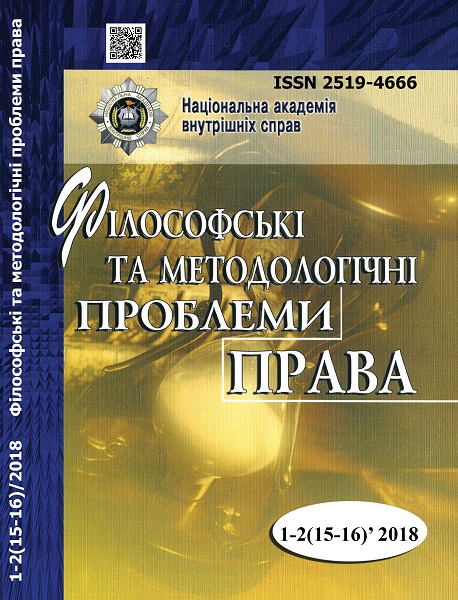Philosophical and Legal Problems of Realization of a Person the Right to Defense in Criminal Process
Abstract
The article it explains the understanding of the scientific design of the right to protection in criminal law and in the process. It is noted that the scientific searches of scientists are aimed at determining the content and form of the concept of the right of defense in criminal law and in the process, which is essentially an opportunity for the implementation of human rights for protection, that is, the use of all available means and means for the purpose of protection against unlawful and groundless prosecution, conviction and unreasonable procedural coercion, restriction of its rights and freedoms. The philosophical and legal problems that arise in the realization of a personʼs right to protection in the criminal process are identified and analyzed.
Among the problems in the criminal process are the following: 1) the lack of unity of theory and practice in some issues that are directly related to the protection of rights; 2) leveling the norms of law by the law enforcement and judicial authorities;
3) the lack of awareness of the fact that every person has the right to protection; 4) slow improvement of criminal legislation taking into account the requirements
of society.
Downloads
Abstract views: 177 PDF Downloads: 124
Copyright (c) 2019 Philosophical and Methodological Problems of Law

This work is licensed under a Creative Commons Attribution-NonCommercial-NoDerivatives 4.0 International License.
- Authors reserve the right to authorship of their own work and transfer to the magazine the right of the first publication of this work under the terms of the Creative Commons Attribution License, which allows other persons to freely distribute published work with mandatory reference to authors of the original work and the first publication of an article in this magazine.
- Authors have the right to enter into separate additional agreements on non-exclusive dissemination of the work in the form in which it was published in the journal (for example, to post an article in the institution's repository or to publish as part of a monograph), provided that the link to the first publication of the work in this journal is maintained.
- The journal's policy allows and encourages the posting of articles by authors on the Internet (for example, in electronic storehouses of institutions or on personal websites), both before the submission of this manuscript to the editorial office and during its editorial processing, as this contributes to the creation of a productive scientific discussion and positively affects the efficiency and dynamics of citing the published work.




